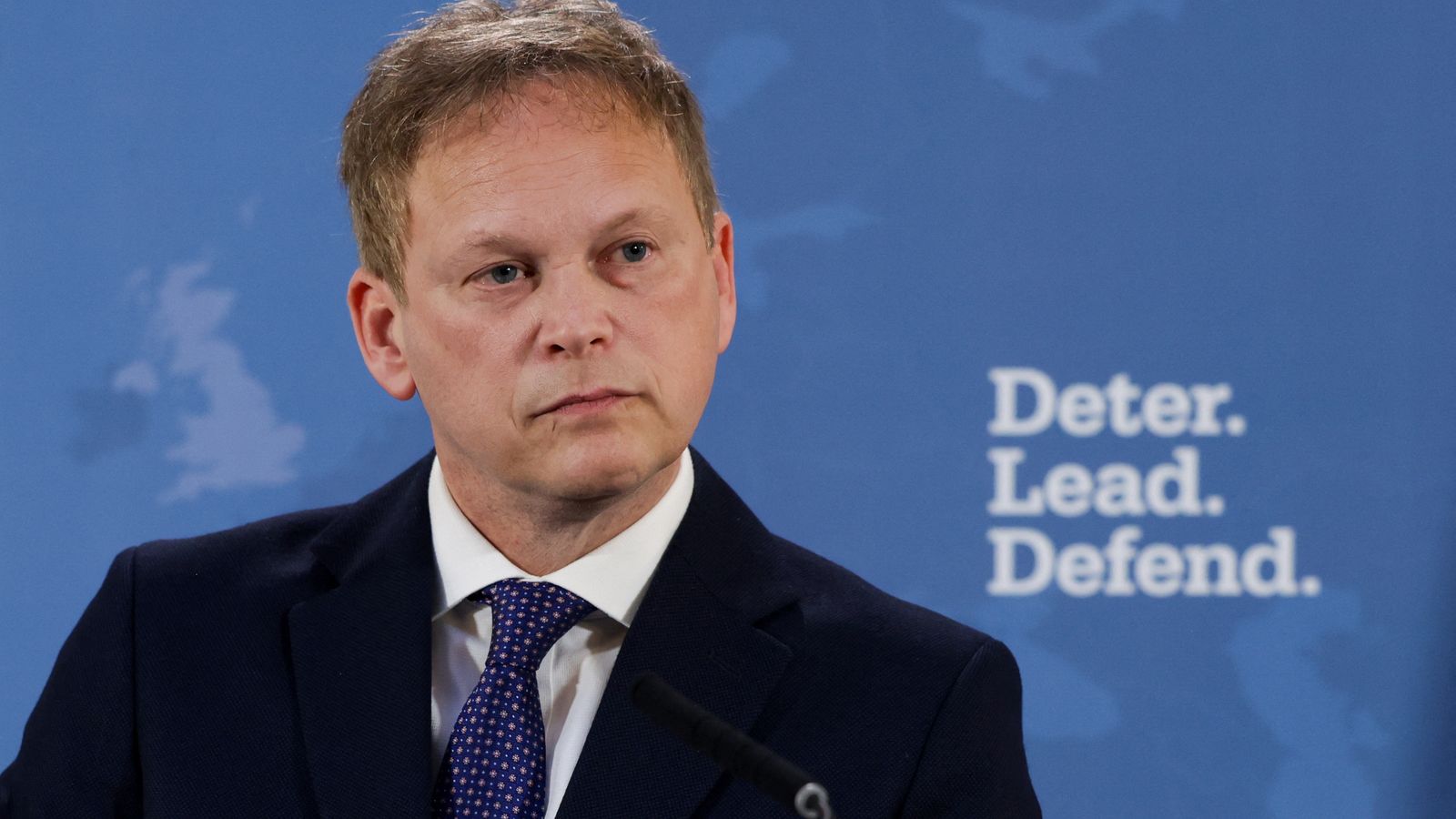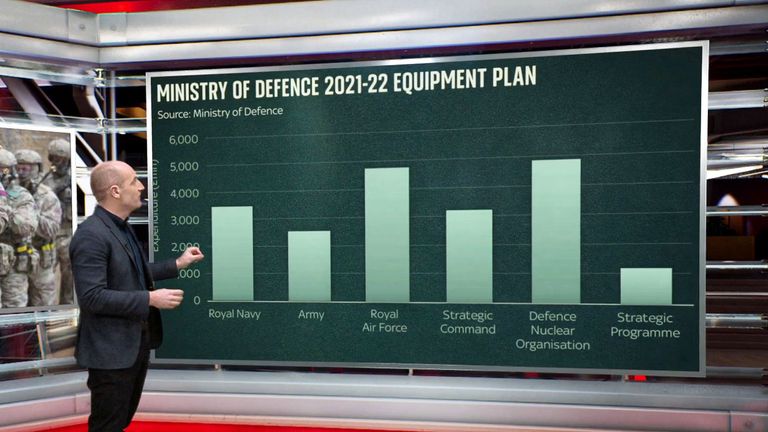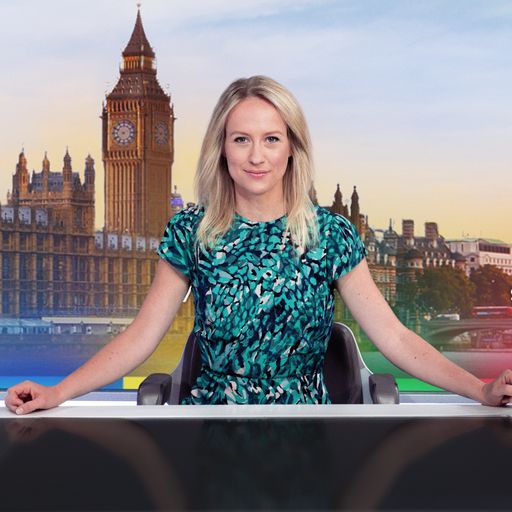It is “critical” for members of NATO to increase their defence spending to at least 2% of GDP, says Grant Shapps.
In a wide ranging speech on Monday, the defence secretary insisted the UK would “strive” to reach its own goal of 2.5% “as soon as possible”.
But he urged allies to grow their own budgets, as the “era of the peace dividend is over”.
Asked for his direct message to allies by Sky News, Mr Shapps said: “This is an inflection moment to actually ask members of NATO to look at their budgets, to come forward with the funds which bring them up to the level that NATO’s committed to spending.
“The purpose of this speech today is to ensure that the whole of NATO does indeed share the burden.”
Politics latest:
Tories heading for 1997-style defeat, poll says
NATO members agreed back in 2006 that each state would spend a minimum of 2% of their GDP, but Mr Shapps said the latest figures showed only seven of the 31 countries are reaching this target.
Speaking at Lancaster House amid the conflict in Ukraine, the war in Gaza, and military action being taken in Yemen, he said: “Now is the time for all allied and democratic nations across the world to… ensure their defence spending is grown, because the era of the peace dividend is over.
“Ask yourself, looking at today’s conflicts across the world, is it more likely that that number grows or reduces?
“I suspect we all know the answer – it is likely to grow.”
The defence secretary said the UK itself currently spends over £50bn a year on defence – which he said was “comfortably” above the 2% target.
But he stood by the pledge made by Boris Johnson in 2022 to see that figure hit 2.5% – although unlike the former prime minister, he did not set the deadline of 2030.
“We have made the critical decision to set out our aspiration to reach 2.5% of GDP on defence,” he said.
“And as we stabilise and grow the economy, we will continue to strive to reach that as soon as possible.”
Mr Shapps’ speech also confirmed the UK government would be sending 20,000 troops to one of NATO’s biggest military drills since the Cold War as the alliance practices repelling an invasion by Russian forces.
Army, navy and RAF personnel will be deployed to the Steadfast Defender exercise in a bid to provide “vital reassurance against the menace” of Vladimir Putin, he said.
Elsewhere in his speech, Mr Shapps said the “combined threats” of state aggression and terrorism risked “tearing apart the rules based international order, established to keep the peace after the Second World War” – adding that the world was “sadly far more dangerous” than since the huge conflict ended.
He underlined the UK government’s commitment to helping Ukraine against the Russian invasion, confirming Britain had now trained 60,000 Ukrainian troops since the war began.
Prime Minister Rishi Sunak made a surprise visit to Kyiv on Friday to unveil a further £2.5bn support package for Ukraine in 2024-25 – an increase of £200m on the previous two years.
Mr Shapps appealed to allies to “act globally” in support for the country.
The defence secretary also claimed the UK was “the guardian of international free trade” as he defended the joint action with the US to strike Houthi rebel sites in Yemen in retaliation for their targeting of vessels in the Red Sea shipping lane.


